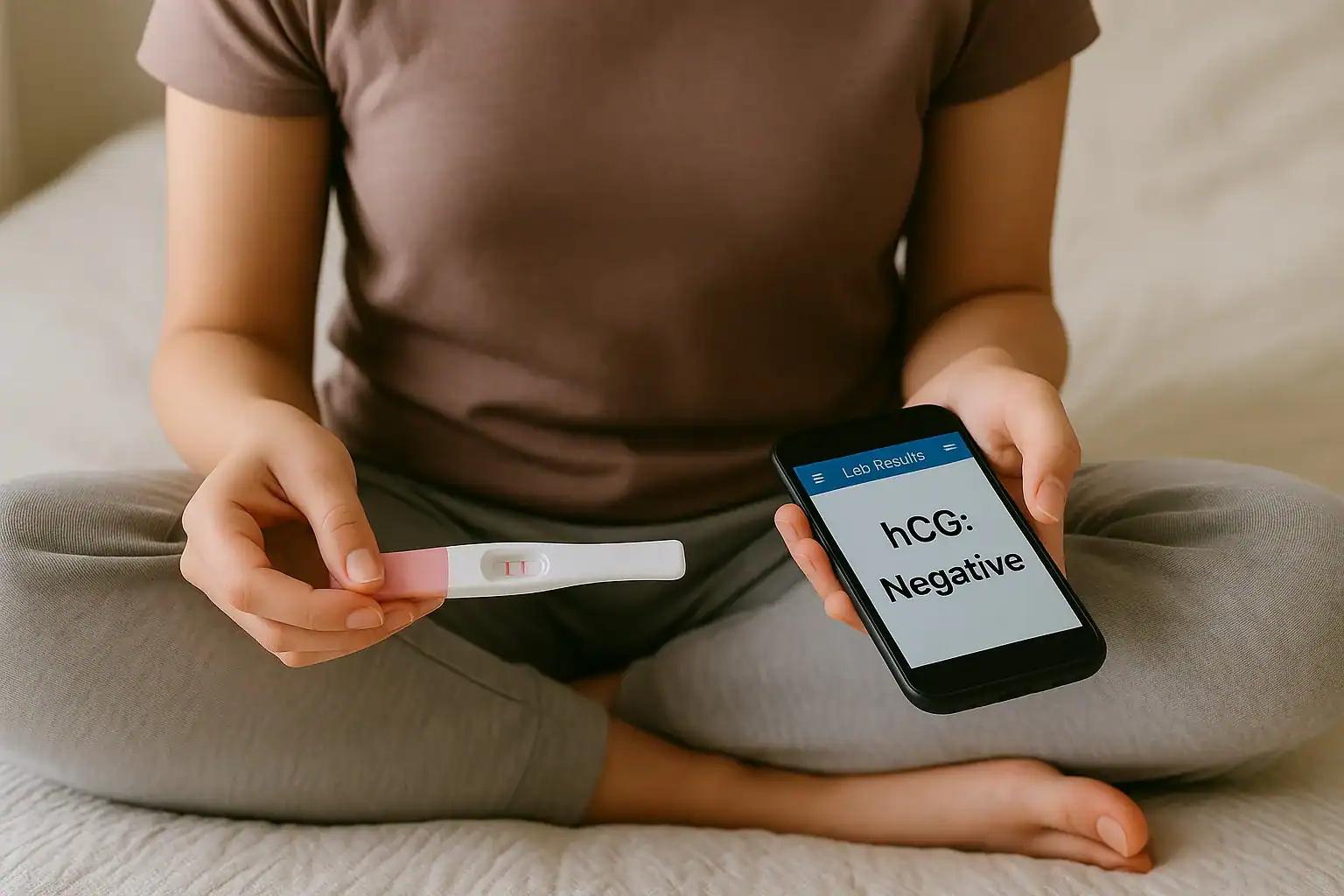Why Was My Home Pregnancy Test Positive, But My Blood Test Negative?
When the lines don’t match up, and neither do the feelings
You take a home test. There it is – a second pink line! Maybe faint, maybe bold, but there. Your heart leaps.
Then your doctor calls: “Your blood test was negative.”
Wait, what?
If you’ve found yourself in this deeply confusing moment, you’re not alone. A surprising number of people experience this same emotional whiplash. And while it can feel heartbreaking or frustrating, there are some gentle explanations that might help you make sense of what’s going on.
Let’s walk through what might have happened and what to do next.
Urine vs. Blood: What Are These Tests Actually Measuring?
Home pregnancy tests (urine tests) and blood tests both check for the same hormone—hCG, or human chorionic gonadotropin. But they do it in different ways, at different sensitivity levels, and sometimes with very different results.
- Urine tests are designed for convenience. Most are sensitive to about 20–25 mIU/mL of hCG and give you a simple yes-or-no result.
- Blood tests come in two types:
- Qualitative: just tells you if hCG is present (like a home test).
- Quantitative (beta hCG): tells you the exact amount of hCG in your blood—down to even a few mIU/mL.
So yes, blood tests are technically more sensitive. But timing, type of test, and even test error can shift the picture.
Positive Home Test, Negative Blood Test – What’s Going On?
1. You Tested at a Tricky Time
If your home test showed a faint line and your blood was drawn just a day or two later, the results might’ve crossed paths at just the wrong moment. hCG can rise quickly, or drop just as fast, depending on what’s happening in your body. Especially in the earliest days, this timing can cause confusing test results.
2. It Was an Evaporation Line (Not a True Positive)
Some home tests show a faint, grayish line after the time limit, called an evaporation line. It can look like a positive if you’re not expecting it. If the test sat too long or was taken with diluted urine, it may have seemed positive when it really wasn’t detecting hCG at all.
3. You Experienced a Chemical Pregnancy
A chemical pregnancy is a very early loss, so early that it often happens before your next expected period. Your body produces hCG, triggering a positive home test, but the pregnancy doesn’t progress. By the time your blood is drawn, the hCG may already be fading.
4. There Was a Testing or Lab Error
It’s rare, but sometimes tests are faulty, expired, or misread. Even blood tests can be misprocessed or misunderstood, depending on thresholds or timing. If your results don’t match your symptoms, it’s okay to ask for a retest.
What to Do Now: Gentle Next Steps
First, breathe.
We know this is emotional and confusing, and you deserve answers—but you also deserve gentleness right now.
Here’s what can help:
- Retest in 2–3 days. hCG levels double roughly every 48–72 hours in early pregnancy.
- Track your cycle. Write down dates, symptoms, and test results so you have a clear record.
- Ask for a second blood test. Especially if your period hasn’t arrived and you’re still unsure.
- Notice how you feel. Your emotional wellbeing matters just as much as your physical symptoms.
When to Reach Out to Your Doctor
- If you’ve had multiple conflicting tests and no clear answer
- If your period doesn’t show up within a week or two of your positive home test
- If you experience heavy bleeding, pain, or emotional distress
- If you’ve had early losses before and need extra support
You’re not being dramatic. You’re advocating for your body, your hopes, and your peace of mind.
Frequently Asked Questions (FAQ)
Can you get a false positive on a home pregnancy test?
Yes. Although rare, false positives can happen due to evaporation lines, certain medications, or a very early loss (chemical pregnancy).
Is a blood test more accurate than a urine test?
Generally, yes. Blood tests can detect lower levels of hCG and are more precise. But timing matters, a lot.
How common is a chemical pregnancy?
Very. Studies suggest that 1 in 4 early pregnancies may end this way, often before someone realizes they were pregnant.
How soon after a positive home test should I see a doctor?
Usually within a week of a missed period or a clear positive test. But if you’re unsure or feeling anxious, reach out sooner.
Which test should I trust?
Neither test tells the full story alone. Consider both results, your timing, and your symptoms. Then, ask for a second test or talk with your provider.
